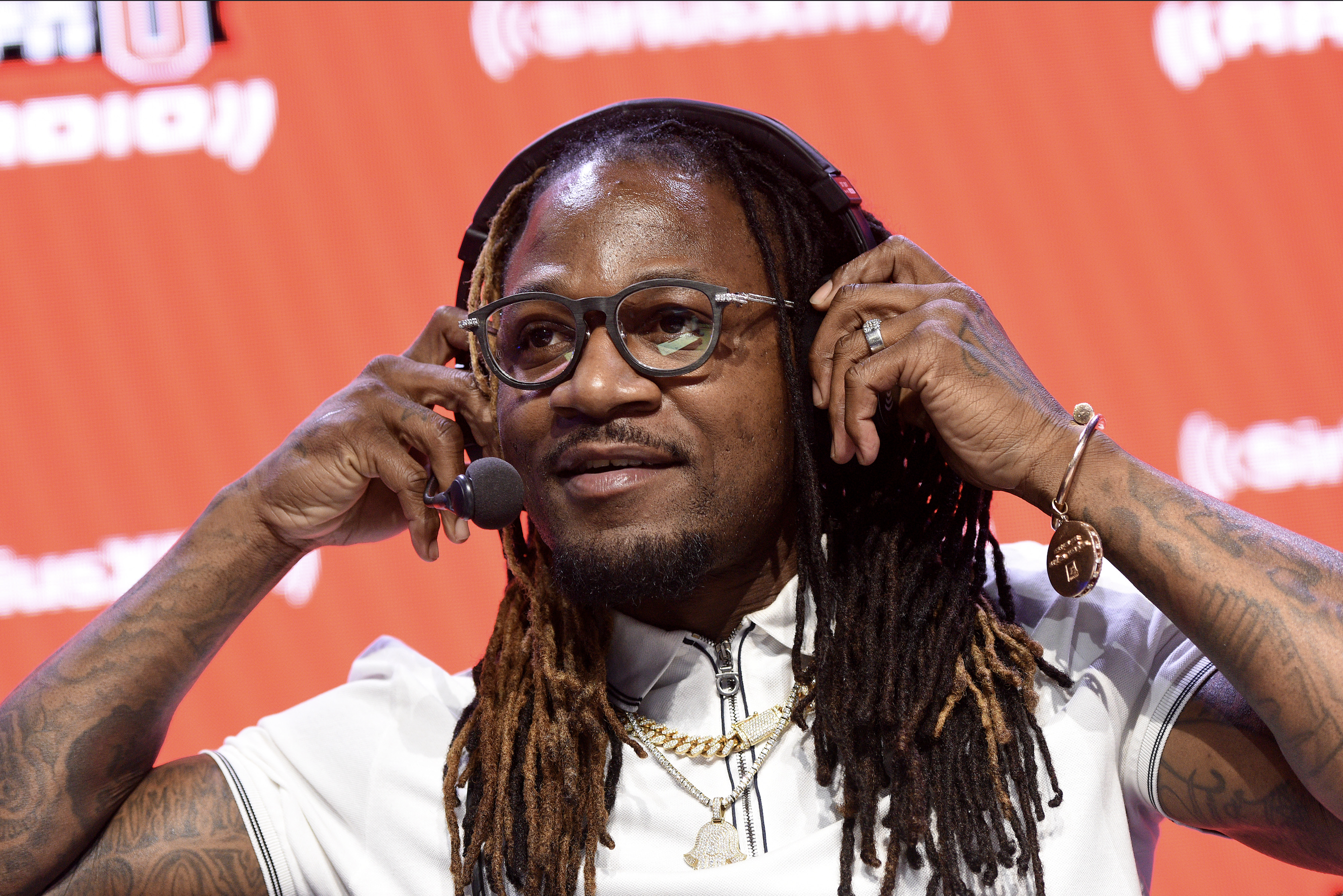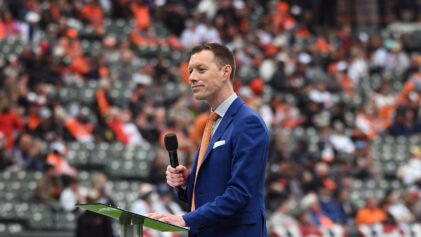Adam Jones dope performance in leading the United States to its first World Baseball Classic championship, his racially demoralizing incident at the hands of Boston Red Sox fans, the social media firestorm that followed, the lingering effects of those incidents and the his willingness to publicly address these issues, has thrust him into a position where he is now the go-to guy on African-American issues in baseball.
Over the weekend, Jones visited the Negro Leagues Baseball Museum in Kansas City, Missouri, which preserves and celebrates the rich history and numerous contributions of black baseball in the United States. Jones made a significant contribution to preserving the museum and its mission when he announced that he will provide free museum admission to children from Operation Breakthrough, a local non-profit that offers full day learning and childcare for kids ages 0-5.
According to Yahoo.com, “The $20,000 donation Jones gave the museum was the latest example of him standing behind the things in which he believes. In baseball, perhaps the most buttoned-up of major American professional sports, potential blowback and a clubhouse culture squelch desires to address social issues.
Jones, 31, is the exception. He has become the voice for the modern black baseball player. Opinionated and fearless, Jones sees what his baseball forebears did not just for the sport but the United States writ large and recognizes the power of his platform to influence for the better.
Jones has always been an African-American baseball player willing to make himself accessible to media and the first major baseball interview we scored here during the early years of The Shadow League was with him. We spoke openly and candidly about African-Americans in MLB and why events such as Jackie Robinson Day and The Civil Rights Game is important.
The following is from that interview:
TSL: Why is MLBs Civil Rights Game so important? Do you feel the impact of past players such as Willie Mays and Frank Robinson even resonates with African-Americans anymore?
Jones: Its important… but we’re in the era nowadays and were steadily moving towards a time where its a social media, opinionated, non-factual, non-truthful exchange of information, where everybody wants to have their voice heard over everybody else just because they can. Youre able to reach out to your favorite people and express yourself directly to them. Times have changed.

These guys before us were kings. The guys you named Hank, Frank, Rickey, countless others that have played in the 60s, 70s and 80sit obviously starts with Jackie, but just imagine. Imagine what you would have done if youre getting sprayed with a hose. That hurts Im sure. But these guys, so many of them sacrificed and forfeited their civil liberties and civil rights, knowing that because of their actions the future will be better for people. Its humbling that were able to play in this game. Its also humbling that my people who were here before meIm not just going out and totally disrespecting everything they worked hard for. By participating in this game Im showing that as a modern day African-American player, Im not taking anything for granted. I understand that were in a position right now because of what those players before me have done, and Im indebted to countless numbers of people who fought for a future that they had no idea about and couldnt personally benefit from.
In a recent conversation with Yahoo Sports, the five-time MLB All-star expounded on his 2014 TSL interview and addressed the ugly incident at Fenway Park, Curt Schillings belief Jones made up the story, how baseball is a white-mans sport and why he believes three-strikes criminal policies have harmed the game.
Here is Jones’ response to a question on race from his recent Yahoo interview:
Yahoo: Youve seen when players talk about a subject as sensitive as race that they can be portrayed in a certain way. You still do it. Why?
Jones: Im not afraid of the backlash, because its the truth. Its my truth through my eyes. We all have our own truths. How we were raised thats our truth. Growing up in San Diego, or California in general, its a very liberal state. I grew up with blacks, whites, Mexicans, Filipinos. Everything was diverse. My class wasnt predominantly anything. Playing sports, it was diverse. My neighborhood was diverse. The worst thing is when people say, I dont see color. I think thats the dumbest thing. Unless youre color blind, you see color. You may choose not to think of the other things that come with color, but you see color. At the ballpark in San Diego, you see the diversity. LA, Arizona, San Francisco, both Texas teams. You just see so much diversity. Growing up like that, I always assumed the rest of the United States, the rest of the world, was like that.
Fast forward, and Im playing in Double-A in Arkansas, Little Rock. Id never been to Little Rock. It was my first incident with racism. Some teammates and I are walking going to get something to eat after a game, and some guy riding a bike just wants to spew some nasty things at us. My teammate at the time he was from Georgia, and he was older, and he told me to keep walking, because nothing good could come out of it. Me being 19, I was like, What? This was not supposed to happen like this. Its something Ill never forget. Why would anyone go out of their way to hate on another person?

Life is an education. Over my 10 years in the big leagues, 14 years in pro ball, Ive learned. Everyone will say, Youre just an athlete. You make all this money. You shouldnt complain. I think thats the second-dumbest thing people say. Its not about the money. I make a good amount of money because people pay to see me. Its like an actor. Im an entertainer. No more, no less. Once my entertainment value goes down, Im out of here. I just try to tell people what I see. Im sorry if you dont see them. Im sorry if youre not aware of the situation. But somebody in the outside world cant tell me what a 10-year major league vet experiences and sees.
As athletes, we do have to be censored in a certain way, but at the same time, if theres a big issue, and its something you stand for, youve got to speak out. Because if youre worried about the backlash, I think silence is just as bad. I understand that I put myself in a position where even if I do get bad press, Ive got something to fall back on. I do understand younger players not saying anything. You dont want to hinder your future in this game. Its a wonderful game. Its blessed me and my family so much.
Jones once told me that he wasnt interested in being a spokesperson for Civil Rights in baseball or black issues. Sometimes you are just in the right place at the right time and the way hes conducted himself with professionalism and integrity as a ballplayer, while giving honest insight into baseball from an African-American perspective, has thrust him into a position as a leader in the black baseball community and a mouthpiece for diversity in the game.


